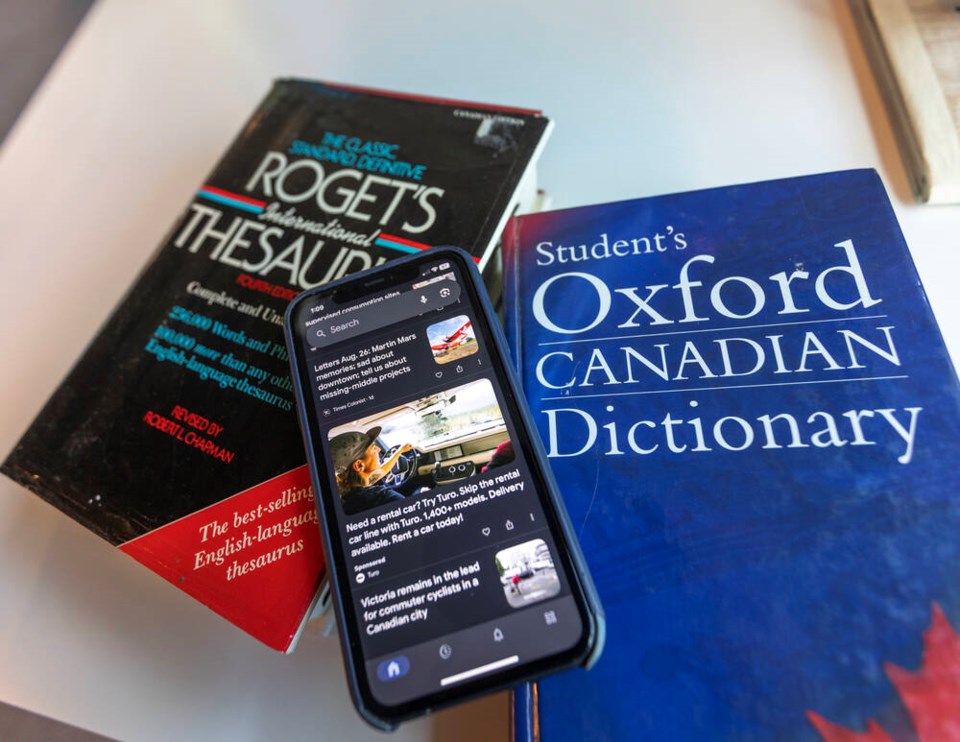A provincewide restriction on cellphones and other digital devices in schools was made official Tuesday by Premier David Eby, who said it is needed “to make sure that kids can be kids, and can learn and can develop strong social relationships.”
Also put forward was a policy to keep protesters off school grounds and a requirement that all students learn CPR before graduation, along with $214 million in funding for creating and expanding school food programs.
“When kids return to school in September, it will be a different environment,” Eby said at a Vancouver news conference.
“Every school district will have a policy in place restricting cellphones from bell to bell.”
Rules to control school cellphone use are already in place or in the works in Alberta, Saskatchewan, Manitoba, Ontario, Quebec and Nova Scotia.
Eby said it is important to have a consistent rule regarding cellphone use that applies everywhere.
The restriction doesn’t apply to students with disabilities who have special features built into their phones, he said.
“Aside from that this is an absolute restriction on cellphones.”
He said some school districts have bags where students have to deposit cellphones, and they can also be put away in backpacks.
The majority of parents he has talked to like the cellphone policy and many wish it had been brought in sooner, Eby said.
The president of the Sooke School District parents’ group doesn’t see a big difference between Tuesday’s announcement and the district’s ongoing approach to cellphones.
“The school district has had a policy like that in place for several years now,” said Tom Davis, president of the Sooke Parents’ Education Advisory Council.
“I think it’s a great policy to have. Electronic devices are definitely a distraction for the students, and it gets worse and worse the higher you go up in the grade levels.”
Davis said he has children in Grades 8 and 9 and sees the effect that cellphones can have.
“Teachers still have the option to make use of them for teaching purposes,” he said.
Parents are used to the policy and there are very few complaints, Davis said.
Greater Victoria Teachers’ Association president Carolyn Howe also said the cellphone measures announced don’t change things much.
She said the Greater Victoria School District has been working on cellphone regulations for some time, and many schools have their own language around the issue.
The association’s approximately 2,000 members are largely behind the current rules, Howe said.
“I think teachers know that cellphones are a big distraction for students and that creating healthy habits around cellphone use is really important for children and youth.”
In the Cowichan Valley School District, a cellphone policy has been in place for several years, as well, and has not generated any pushback from parents, said Jeff Rowan, associate superintendent of communications.
The policy has served to ease any issues regarding cellphone use, he said.
Howe said she supports the province’s move to control protests at schools, and noted there have been protesters at some B.C. schools opposing policy related to sexual identity and gender identity or SOGI policy.
Police can now issue tickets to anyone found to be impeding access to schools or trying to intimidate anyone within 20 metres of school property.
“We’re definitely seeing a rise in hate,” Howe said.
“Teachers want to keep their students safe, and part of keeping them safe is being able to teach about SOGI.
“We’re really happy to see that those no-go zones have been established.”
The zones will be in effect from 7 a.m. to 6 p.m. on school days, and during extracurricular activities at both public and independent schools, with limited exceptions.
She said she doesn’t know of any SOGI-related protests at local schools “but there’s no reason to believe that it wouldn’t happen in Victoria.”
Davis said the requirement to learn CPR is a positive step and will “set more young people up for success to help those around them.”
The training is already offered in about 90 per cent of public secondary schools.
>>> To comment on this article, write a letter to the editor: [email protected]



